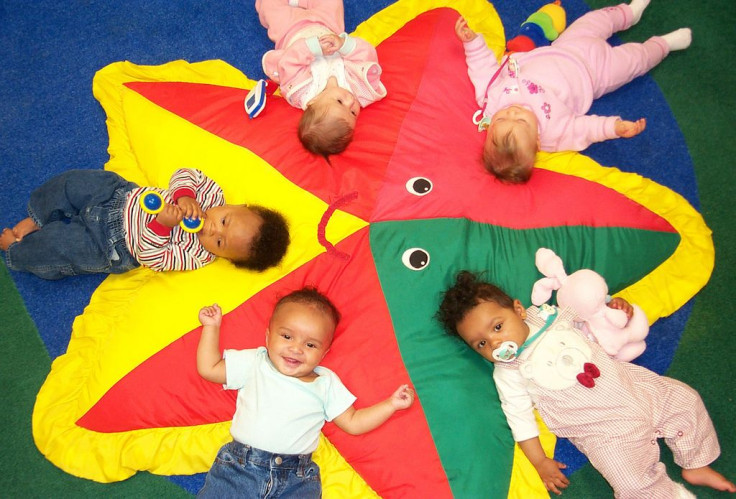Study Of Birds Shows That Getting Help With Caring For A Child Can Improve The Entire Family's Health

We often hear that “it takes a village to raise a child.” It seems the village is also preserving the health of the family. A recent study conducted at the University of Exeter that examined South African weaver birds during their breeding season has found that families who get help with caring for a child have an easier time preserving the health of the entire family as they get older.
"We have long known that helpers lighten the workloads of breeders in many cooperative species, such as ourselves, but the impact of this on health and aging are largely unknown," said Dr. Andrew Young, from the Centre for Ecology and Conservation at the University of Exeter's Penryn Campus in Cornwall, in a statement. Our findings provide exciting evidence of the potential for cooperation to reduce free radical damage, and so examining its later-life effects on patterns of aging is now our primary focus of research."
Young and his colleagues examined cooperative white-browed sparrow weaver birds in the Kalahari Desert during breeding season and compared groups of birds that were not breeding with others that were raising chicks. Birds that were not breeding had no hungry mouths to feed and were able to live a life of leisure. Birds that were raising chicks, on the other hand, worked around the clock to the keep their chicks well fed, which led to them growing to 40 times their original size.
They found that a heavy breeding workload led to increased free radical damage to cells, something that is often tied to poor health as we get older. However, this increase in cell damage did not occur among birds that lived in larger groups that shared the workload. How does this apply to humans, you ask? Oxidative stress — the result of free radical damage to cells — is not something that only occurs in weaver birds. In fact, it is associated with over 100 human diseases, including cancer and Alzheimer’s disease.
"One can imagine similar processes at play in humans — if a couple had a baby and were getting help from one or two generous family members, then it would make life easier for the parents, a difference that might ultimately be reflected in their health and lifespan," said the author of the study, Dr. Dominic Cram. "Of course, this would need further research, but the weaver birds of the Kalahari Desert have given us an insight into the way workloads and teamwork can affect health and aging."
Cram added that although antioxidants prevent cell damage, antioxidant protection can get overwhelmed by freed radicals. Our ability to produce antioxidants is controlled by our genetic makeup as well as exposure to environmental factors.
"We found that the birds that were feeding nestlings often had weaker antioxidant defenses and suffered from oxidative stress. However, in large groups where many birds assist with nestling care, the birds showed stronger antioxidants and lower free radical damage. So in larger groups many hands appear to have made light work."
A similar study conducted by researchers from Harvard University showed that single parenting among women can lead to a decline in health as they get older. Women who experienced a period of single motherhood not only had a lower income and education level compared to married mothers, but they also had an increased risk for later-life disability and poor health.
Source: Blount J, Young A, Cram D. The oxidative costs of reproduction are group-size dependent in a wild cooperative breeder. Proceedings of the Royal Society B. 2016.



























